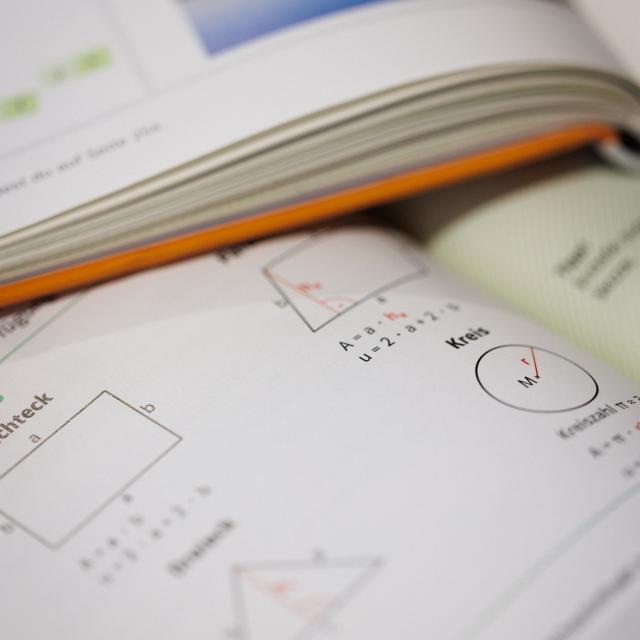Mental arithmetic with language barriers
By Christian Block, Lex Kleren, Misch Pautsch Switch to German for original article
How we learn to do maths has a lot to do with language. The high standards of the Luxembourg school system come at a price: many children fall short of their full mathematical potential due to language barriers. But things are starting to move.
Maths teachers Anne Nau and Claude Mentgen brought something with them to the interview in Grevenmacher: textbooks that are originally intended for maths lessons in Saarland or Rhineland-Palatinate.
Since 2014/2015, the Maacher Lycée (MLG) has been characterised by a special feature. Pupils in general (formerly: "technique") secondary education (ESG) can enrol in a "Français +" class in the lower grades. Pupils who choose this option have one more hour of French on their timetable. They can even choose to receive three hours of additional remedial lessons every three weeks. But above all – and this is the real starting point – maths is taught in German. For Claude Mentgen and Anne Nau, the German textbooks are a makeshift tool.
The idea was born around 20 years ago when they realised that pupils were finding it difficult to switch the language of instruction from German to French from primary to secondary level. "When I speak French in class, I know very well that the pupils don't understand the mathematical context, but first have to get to grips with the French. Then I explain it a second time, " Claude Mentgen explains his experience in front of the blackboard. The maths teacher also refers to the trend at the time towards problem-based maths, which presented pupils with a lot of text-heavy tasks, which in turn created a barrier when they first had to decipher sentence structure and foreign words before they could demonstrate their mathematical skills. "As mathematicians, we are simply interested in teaching maths, " says Mentgen, summing up the motivation to offer maths lessons in German. After a lengthy tug-of-war with the Ministry of Education, the MLG was able to start implementing their plan in 2014/15. Under two conditions: Firstly, the project had to be limited to the lower level of general (formerly: technique) education and, secondly, the school had to commit to working on the pupils' knowledge of French in parallel. This explains the name.
You want more? Get access now.
-
One-year subscription€185.00/year
-
Monthly subscription€18.50/month
-
Zukunftsabo for subscribers under the age of 26€120.00/year
Already have an account?
Log in


